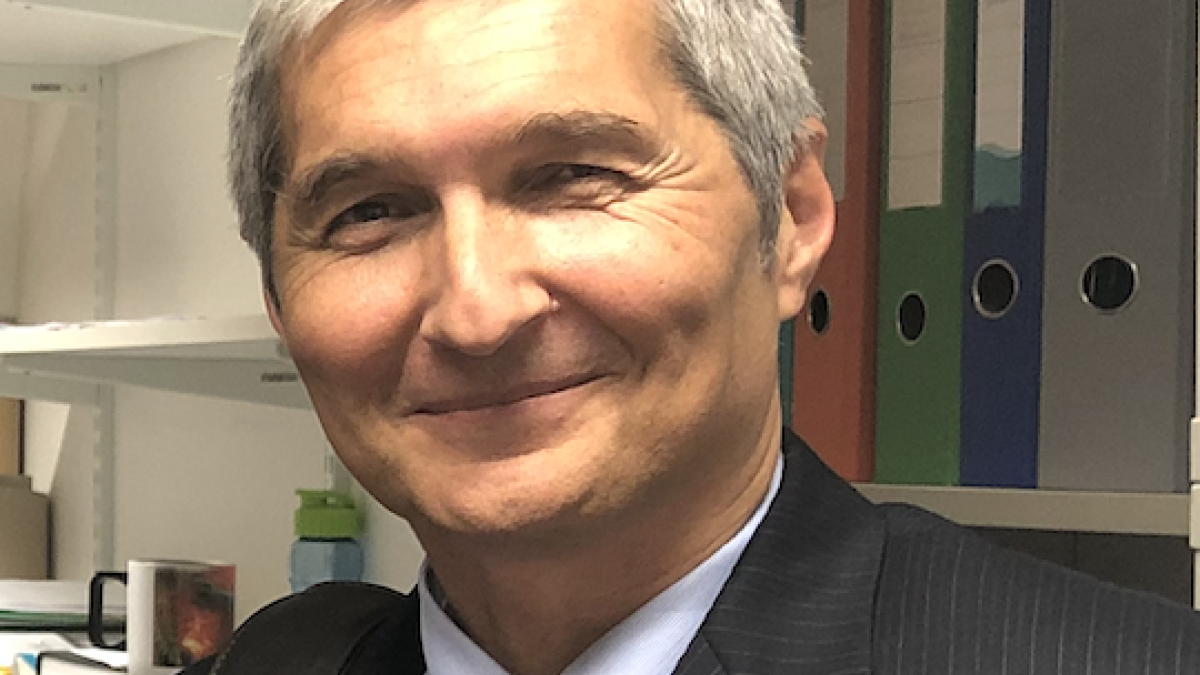Slavic languages professor is 2019 Walton Award recipient

Danko Šipka is the recipient of the 2019 Walton Award from the National Council of Less Commonly Taught Languages. Photo courtesy of Danko Šipka
Voices speaking in dozens of languages ring out, offering their appreciation: “Čestitam" (Slovenian). "Gratuluję” (Polish). "Поздравляю" (Russian).
This chorus of congratulations is what Danko Šipka will hear when he accepts the 2019 Walton Award this month from the National Council of Less Commonly Taught Languages for his service and contributions to the fostering of less commonly taught language initiatives. Šipka is a professor of Slavic languages and head of the German, Slavic and Romanian faculty at Arizona State University, where he teaches Bosnian/Croatian/Serbian, Polish and Slavic linguistics in the School of International Letters and Cultures.
The Walton Award will be handed out at the council’s annual conference, taking place in Atlanta on April 26-28. Awarded since 2000, it honors the late professor A. Ronald Walton, who was known for his promotion of less commonly taught languages. Šipka was nominated by Alwiya Omar, a professor at the University of Indiana and a previous recipient of the award.
“I was genuinely surprised when I heard about it — people always say that and rarely mean it, but in my case, it was true,” Šipka said. “Once my astonishment subsided, I felt honor to be in a group of previous awardees who have been significantly advancing the study and teaching of less commonly taught languages. I also felt pleasure that my work in the field was seen as worth recognizing.”
Šipka has published over 30 books and more than 150 articles, essays and reviews during his career. For the past 12 years, he has served as the editor of the Journal of the National Council of Less Commonly Taught Languages. Šipka is also a certified interpreter for the IRS, the Department of Justice and the Department of Homeland Security and has served as a senior linguist and consultant to multiple language-industry companies.
He applauded ASU for leading the way for other universities by offering courses in a variety of less commonly taught languages, which he described as a “cornerstone of community embeddedness.”
“I particularly enjoy seeing language skills as an important element of our student success — from conducting advanced research in the countries where these languages are spoken to serving in government agencies like the State Department to engaging NGO projects and international organizations,” Šipka said. “At the same time, the programs build strong ties with heritage communities in Arizona — languages that I teach feature very strongly in such communities that were formed in several waves of immigration ever since the late 19th century.”
More Arts, humanities and education

‘It all started at ASU’: Football player, theater alum makes the big screen
For filmmaker Ben Fritz, everything is about connection, relationships and overcoming expectations. “It’s about seeing…

Lost languages mean lost cultures
By Alyssa Arns and Kristen LaRue-SandlerWhat if your language disappeared?Over the span of human existence, civilizations have…

ASU graduate education programs are again ranked among best
Arizona State University’s Mary Lou Fulton College for Teaching and Learning Innovation continues to be one of the best…

